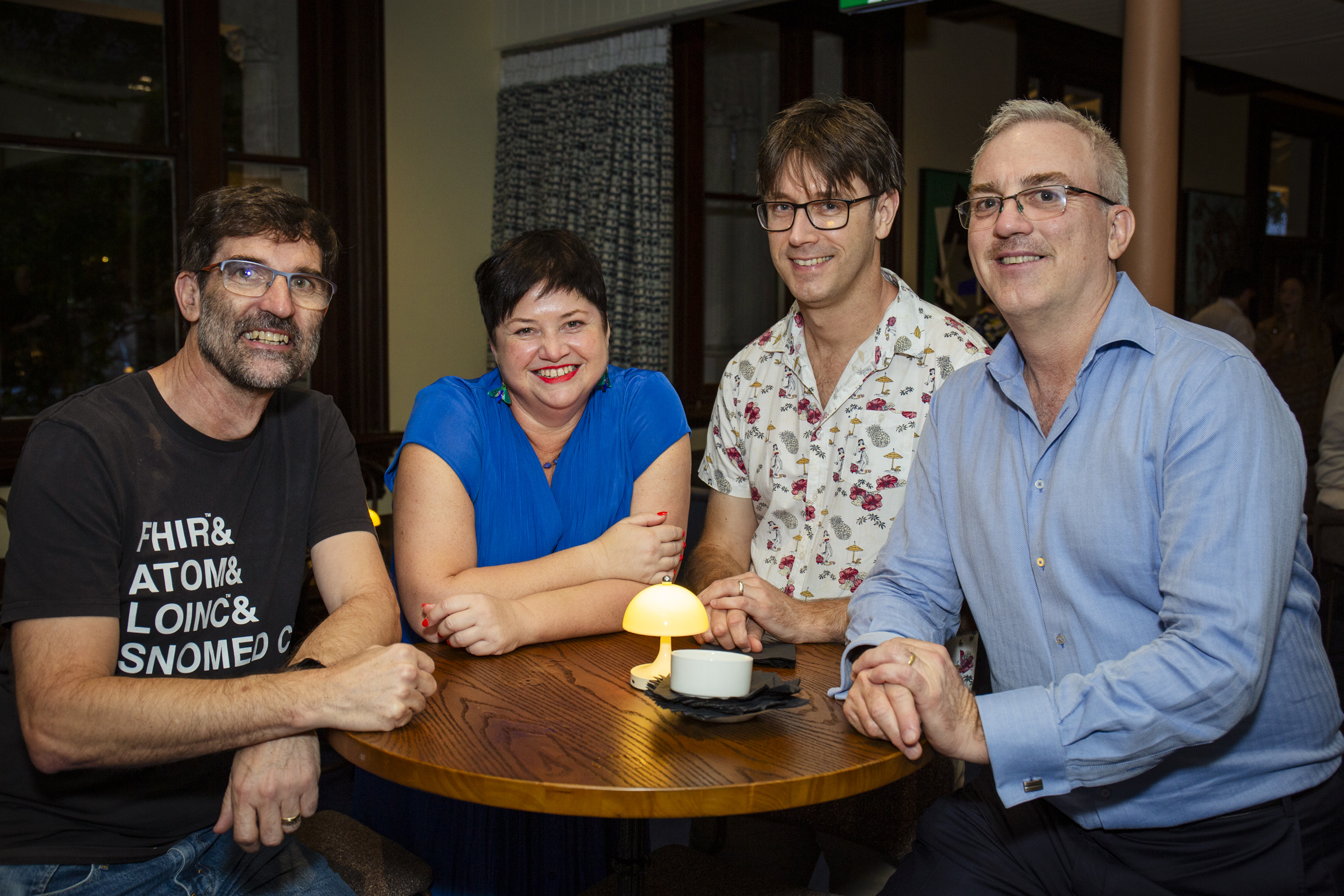Transforming healthcare with the National Clinical Terminology Service
Amsterdam is known for many things. At the AEHRC, we know it as the birthplace of Australia’s National Clinical Terminology Service (NCTS).
10 years ago, a team of scientists and software engineers huddled together in the corner of a café in Amsterdam. Their goal? To standardise clinical healthcare terminology in Australia to more effectively capture and share health data.

(L-R) Michael Lawley, Kate Ebrill, Matt Cordell and David Hansen were the originators of the NCTS concept.
Consistency in clinical terminologies
Sharing clinical information between individual clinicians, health care organisations and state/territory health departments is complicated. Data is often captured using different clinical terminologies or “languages”. At least, that was the case until Australia implemented a federated national clinical terminology service.
The idea originated in that cafe all the way across the globe. The researchers were discussing increasing the implementation of SNOMED CT, the world’s most comprehensive multilingual clinical healthcare terminology, in Australia. It wouldn’t be an easy task.
What if they could develop a clinical terminology service to support the widespread adoption of SNOMED CT? The service could be based on an application programming interface (API) within the emerging Fast Healthcare Interoperability Resource (FHIR) standard.
Australia’s National Clinical Terminology Service
Just two years later, in 2016, Australia’s National Clinical Terminology Service (NCTS) was launched. The NCTS is underpinned by CSIRO’s Ontoserver FHIR Terminology server and is led by the Australian Digital Health Agency (ADHA). Ontoserver licences are available for free for end use in Australia from the ADHA.
Since it launched, the NCTS has facilitated standard terminologies in Australia’s digital health systems and enabled standard-based interoperability in data exchange.
Over 100 organisations have taken advantage of the free Ontoserver license available from the ADHA. This allows them to investigate how they can implement SNOMED CT – and other health terminologies – into their systems.
Australia leads; other countries follow
Australia is truly leading the way in healthcare terminology services. Eight other countries have now implemented a national terminology service using our Ontoserver technology.
Kate Ebrill, Product and Programme Lead for Clinical Terminology and FHIR products at the AEHRC, is proud of Australia’s achievements on the international stage.
“Our NCTS model has really changed the way terminologies are implemented in the international space. We’ve now paved a way forward for the world,” Kate said.
Prior to the availability of Ontoserver, health services needed to download files every six months to make sure their terminology was up-to-date. Ontoserver uses FHIR APIs to deliver real-time terminology updates, saving health services time and money.
The team recently hit another milestone. The Australian Medicines Terminology model has been revised and is now in its fourth version (AMT v4). The team has now integrated this version into SNOMED International’s managed service platform.
How does standardised clinical terminology help me?
Ongoing improvements to the way health data is captured and shared benefit all of us.
Healthcare across borders
During periods of crises like epidemics, data can help guide emergency decision making. But the data needs to be transferable between different healthcare systems and organisations. Standardised clinical terminology enables data to be shared and used for important decisions like resource allocation.
Improved clinical decision making
Clinicians with detailed data can make more accurate diagnoses and treatment choices for patients. Access to clinical notes, test results and medical images helps clinicals make informed decisions.
A global healthcare language
A global healthcare language creates a common standard for data exchange across international health systems. If you’re hospitalised abroad, your patient records can be easily accessed and used for your care.
The Australian e-Health Research Centre (AEHRC) is CSIRO's digital health research program and a joint venture between CSIRO and the Queensland Government. The AEHRC works with state and federal health agencies, clinical research groups and health businesses around Australia.
